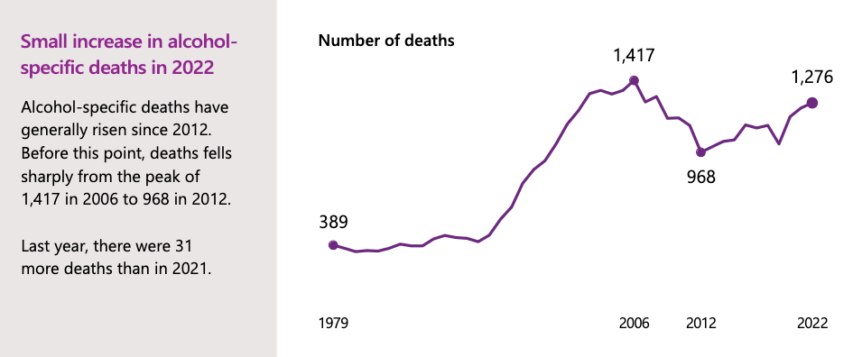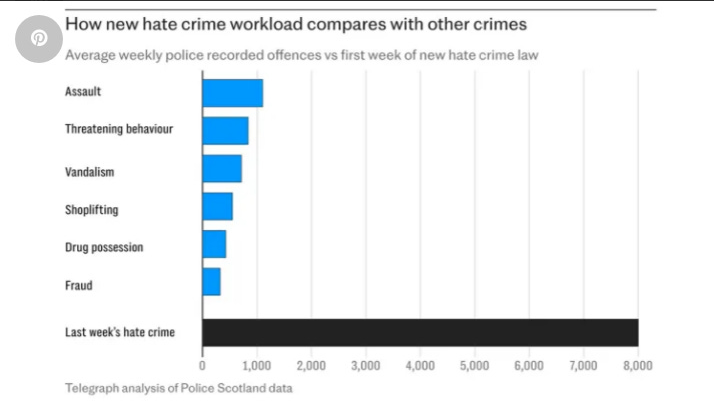In 2005, [Gertrude Himmelfarb] published The Roads to Modernity: The British, French, and American Enlightenments. It is a provocative revision of the typical story of the intellectual era of the late eighteenth century that made the modern world. In particular, it explains the source of the fundamental division that still doggedly grips Western political life: that between Left and Right, or progressives and conservatives. From the outset, each side had its own philosophical assumptions and its own view of the human condition. Roads to Modernity shows why one of these sides has generated a steady progeny of historical successes while its rival has consistently lurched from one disaster to the next.
By the time she wrote, a number of historians had accepted that the Enlightenment, once characterized as the “Age of Reason”, came in two versions, the radical and the skeptical. The former was identified with France, the latter with Scotland. Historians of the period also acknowledged that the anti-clericalism that obsessed the French philosophes was not reciprocated in Britain or America. Indeed, in both the latter countries many Enlightenment concepts — human rights, liberty, equality, tolerance, science, progress — complemented rather than opposed church thinking.
Himmelfarb joined this revisionist process and accelerated its pace dramatically. She argued that, central though many Scots were to the movement, there were also so many original English contributors that a more accurate name than the “Scottish Enlightenment” would be the “British Enlightenment”.
Moreover, unlike the French who elevated reason to a primary role in human affairs, British thinkers gave reason a secondary, instrumental role. In Britain it was virtue that trumped all other qualities. This was not personal virtue but the “social virtues” — compassion, benevolence, sympathy — which British philosophers believed naturally, instinctively, and habitually bound people to one another. This amounted to a moral reformation.
In making her case, Himmelfarb included people in the British Enlightenment who until then had been assumed to be part of the Counter-Enlightenment, especially John Wesley and Edmund Burke. She assigned prominent roles to the social movements of Methodism and Evangelical philanthropy. Despite the fact that the American colonists rebelled from Britain to found a republic, Himmelfarb demonstrated how very close they were to the British Enlightenment and how distant from French republicans.
In France, the ideology of reason challenged not only religion and the church, but also all the institutions dependent upon them. Reason was inherently subversive. But British moral philosophy was reformist rather than radical, respectful of both the past and present, even while looking forward to a more enlightened future. It was optimistic and had no quarrel with religion, which was why in both Britain and the United States, the church itself could become a principal source for the spread of enlightened ideas.
In Britain, the elevation of the social virtues derived from both academic philosophy and religious practice. In the eighteenth century, Adam Smith, the professor of moral philosophy at Glasgow University, was more celebrated for his Theory of Moral Sentiments (1759) than for his later thesis about the wealth of nations. He argued that sympathy and benevolence were moral virtues that sprang directly from the human condition. In being virtuous, especially towards those who could not help themselves, man rewarded himself by fulfilling his human nature.
Edmund Burke began public life as a disciple of Smith. He wrote an early pamphlet on scarcity which endorsed Smith’s laissez-faire approach as the best way to serve not only economic activity in general but the lower orders in particular. His Counter-Enlightenment status is usually assigned for his critique of the French Revolution, but Burke was at the same time a supporter of American independence. While his own government was pursuing its military campaign in America, Burke was urging it to respect the liberty of both Americans and Englishmen.
Some historians have been led by this apparent paradox to claim that at different stages of his life there were two different Edmund Burkes, one liberal and the other conservative. Himmelfarb disagreed. She argued that his views were always consistent with the ideas about moral virtue that permeated the whole of the British Enlightenment. Indeed, Burke took this philosophy a step further by making the “sentiments, manners, and moral opinion” of the people the basis not only of social relations but also of politics.
Keith Windschuttle, “Gertrude Himmelfarb and the Enlightenment”, New Criterion, 2020-02.
March 5, 2025
QotD: British and French Enlightenments
January 8, 2025
How To Make 17th Century Clotted Cream – A History
Tasting History with Max Miller
Published 27 Aug 2024Clotted cream served with scones and jam
City/Region: England | Scotland
Time Period: 1670 | 1755Clotted cream is one of the most delicious and simple foods I’ve ever had. It’s made with only one ingredient, but has a richness and nuttiness that is divine. It’s one of those foods that is difficult to track down the origins of, but one story includes the ancient Phoenicians, and another a fairy princess and prince. Both are equally likely to be true.
For best results, look for cream that isn’t ultra-pasteurized. Labels will say “pasteurized” or “low temp pasteurized”. This recipe doesn’t have a lot of active time, but the cream does need to cook for 12 hours, so I recommend starting first thing in the morning. It’s worth it.
To make clouted Cream
Take Milk that was milked in the morning, and scald it at noon; it must have a reasonable fire under it, but not too rash, and when it is scalding hot, that you see little Pimples begin to rise, take away the greatest part of the Fire, then let it stand and harden a little while, then take it off, and let it stand until the next day, covered, then take it off with a Skimmer.
— The Queen-Like Closet, or Rich Cabinet by Hannah Wolley, 1670Clouted Cream
… If you please beat Part of it with a little Rose-water, and a Lair of unbeaten Clouts, with Sugar between …
— A New and Easy Method of Cookery by Elizabeth Cleland, 1755
December 3, 2024
David Starkey’s view of history
At the Daily Sceptic, James Alexander summarizes how historian David Starkey’s views of history — British history specifically — provide a useful way to analyze British political issues today:
What David Starkey is trying to do is deliver to the British (or English) public a jeremiad informed not by moral posturing or theoretical commitment but by a sense of history. This is so valuable it should almost come without criticism. I think that Starkey’s vision of history is so arresting it deserves to be expressed in short form and so I will attempt a summary of the position. Starkey is an admirably entertaining speaker, and offers a vision that is several dimensions more complicated than we hear from anyone else at the moment. He is full of prepared lines, and has a ready mind: “Niall Ferguson, the good Niall Ferguson, not the bad Neil Ferguson …”; “All bad ideas begin with the French”; “The Union of England and Scotland made the modern world”; “The monarch changes religion as he crosses the border: he begins Anglican, and becomes Presbyterian”; “The Labour party is the equivalent of the Nomenklatura of Soviet Russia: a privileged class”; etc.
I have some criticisms. But first, his vision of our history.
Let me begin by summarising Starkey’s view of history as it conditions the present. He argues the following:
1. On the nature and relevance of history. History is fundamental. We cannot understand ourselves using theory. Avoid abstraction. Use history instead. It is concrete. He suggests that we have always studied history for the sake of the present, though in recent centuries we have also studied it for its own sake. He adds that we should make analogies between past and present.
2. On English history. Starkey says that we were first part of Greater Scandinavia, then, from 1066, were part of an Anglo-French order. The third stage of our history began with the Reformation. Starkey likens the Latin Christendom of the Papacy to the European Union: and so calls Henry VIII the first Brexiteer. The consequence of the Reformation was that Britain and Europe become antagonists. For the first time the sea was reconfigured as a barrier, defended by the navy: and this happened at the same time that energies were thrown outward to the rest of the world. What the English managed to do, along with the Scots, was build something out of the strong language that rises from Chaucer to Shakespeare: the two home countries united to make it impossible to be invaded; they united to make an empire in the world; and they united to make use of remarkable innovations in finance and later industry.
One of Starkey’s great themes is this Union of England and Scotland: first by King in 1603 and second by Parliament in 1707. Starkey says England is not a nation. It lacks a ridiculous national dress (since its national dress, of coat and trousers with tie, was given to the world as universal official dress). And the Union was wholly original, as it subjugated Scotland to England’s Parliament, abolishing the Scottish Parliament, while leaving Scottish law, religion, military tradition and heraldry alone. England and Scotland are politically united, but only politically united. Starkey’s point about all this is that it was never about “identity”. There was no such thing as a “Briton”. There was no national system of education. So there was no nonsense of any modern-style post-French Revolution nationalism. Instead, we were natural liberals, able to take in immigrants without difficulty. However, throughout all this England is politically dominant in Great Britain and in the Empire.
3. On the present time. Starkey has two points of reference. One is the 1970s, when things went wrong, with a short reversal under Thatcher, and in the 1990s, when things went even more wrong, and perhaps permanently wrong, because constitutionally wrong. The 1970s was the culmination of the Labour politics of welfare, accepted weakly by Macmillan and Heath, but the 1990s was worse because political and constitutional. Labour took things in the wrong direction by making the Bank of England independent and by enabling a new Scottish Parliament to emerge: also by bringing about the Equality Act of 2010 (actually an innovation of Gordon Brown); also by creating a Supreme Court. Then, finally, Charles III removed Parliament from the Coronation, and there was no mention of politics: whereas, since 1688, the Coronation had been a political act. Political power has been fragmented and dispersed from the King-in-Parliament to the quangos, to the Bank of England, to the lawyers. The principle of balance is lost, as every institution has become an interest group, pursuing single issues: an entire raft of Anti-Corn Law Leagues.
Starkey suggests that England will remain an idea, much as the idea of Rome survived the decline and fall of the Roman Empire. This is pessimistic judgement. His optimistic judgement, or hope, is that some sort of “restoration”, like the Glorious Revolution, can be enacted. As far as I have heard, he has not yet sketched the form of his restoration, though it has been promised.
Is this clear? Henry VIII broke the monasteries, threw out the Papists, built Oxford and Cambridge in new form, fortified the coast and began the story of Greater England. If we fill the gaps, there were difficulties with the consequences, religious and political, through the reigns of Mary, Elizabeth, James and Charles, but these were resolved in 1688 and then 1707. Then Great Britain became a great power. This remarkable creation was politically and constitutionally destroyed by the theorists and politicians of the late 20th century, since they demoted England within Britain, unleashed petty nationalisms in political form, and, in passing, did not do enough to restrain the welfare state or, we might add, enough to prevent English tolerance being twisted to accommodate net immigration of 700,000 people of fairly antagonistic cultures per year. Britain is now ruled not by Government-in-Parliament but by delegated arbitrary powers and influences which offer sops to partial interests and mean that nothing can be done. No one has an adequate conception of the entire state.
November 13, 2024
Ah, the lovely Welsh countryside, where everything is … racist?
Andrew Doyle digs into the claim that the Welsh government recently made that “racism relating to climate change, environment, and rural affairs” is oppressing visible minorities in the principality and preventing them from accessing the countryside:
The Welsh government believes that the countryside presents a problem for ethnic minorities. Its latest report on “racism relating to climate change, environment, and rural affairs” concludes that certain racial groups “face barriers created by exclusions and racism preventing them from fully participating in ‘environmental’ activities”. In response, the Welsh Conservative leader Andrew R. T. Davies has told a reporter from Guido Fawkes: “This kind of outdated virtue signalling nonsense is completely out of touch with the needs of the people of Wales. Labour is stuck on yesterday’s thinking, the kind that is being roundly rejected globally. Time to turf them out.”
The horticultural pun is forgivable given the sheer magnitude of the absurdity. While we might dismiss this as the usual brain-addled antics of the Welsh government, it’s just the latest example of a trend that has been ongoing for years. In September 2020, an article appeared in the Metro claiming that the countryside was “shaped by colonialism” and therefore is “unwelcoming to people of colour”.
Apparently, the illustration of three white people scowling at a black woman while standing in a meadow is proof of the article’s central thesis. I may as well sketch a shiny goblet and claim it as evidence that I’ve found the Holy Grail.
[…]
All of these examples are ostensibly frivolous and easy to dismiss as yet more “woke gone mad” news items, but there are other sinister aspects to consider. For instance, I was able to discover the reason why Kew Gardens went along with this ideological bilge by reading its Equality, Diversity and Inclusion Delivery Plan. One of Kew’s EDI “strategy pillars” includes the seeking of accreditation by outside activist groups including Stonewall. Like many public bodies, ideas are implements in the workplace in return for points on schemes like Stonewall’s Workplace Equality Index.
And this has serious ramifications. You might remember when the Times uncovered documents revealing that Stonewall has attempted to control what NHS trusts, government departments and local councils say on their social media accounts, demanding public support for its views on gender identity ideology, and then rewarding them with points towards its Top 100 Employers index. This means that if a government department uses the term “birthing parent” instead of “mother” they are able to advance in the scheme. It’s quite the racket.
Worse still, 10% of the Scottish government’s score on the index was relating to consultation with Stonewall on revising legislation. In other words, for a while there it was looking very much as though the SNP were using taxpayers’ money to fund a lobbying group that would in turn reward the government for changing the law according to their ideology.
The Welsh government is one of the worst offenders when it comes to pushing gender identity ideology onto children and working at the behest of identitarian activists. A Freedom of Information request in 2023 revealed that “Stonewall Cymru was directly funded by Welsh Government in the sum of £100,000 for the financial year requested”. (The full details can be accessed here.) I am not alleging that the latest drive to “problematise” the countryside is being directed by activist groups for financial gain, but it does suggest a certain susceptibility when it comes to this kind of ideological mania.
So when the Welsh government and other institutions insist that the countryside is racist, or that chrysanthemums are homophobic, or that badgers hate Sikhs, or whatever the current delusion might be, we shouldn’t just laugh it off. These are just the latest and silliest symptoms of a much deeper cultural malaise. This is an illiberal and regressive ideological movement masquerading as liberal and progressive, and it has ways of asserting its power.
Let’s face it, if they can convince you that the countryside is a domain of heteronormative white supremacy, they can convince you of anything.
August 11, 2024
Tears are still a powerful weapon for female politicians
Janice Fiamengo on the tactic available to — and resorted to frequently — only females in politics, turning on the waterworks to generate sympathy and support:
Recently, a friend sent me a news article that illustrates, in small, the world of Anglophone politics, in which notions of what is owed to women, who are understood to be far more sensitive and fragile than men, operate alongside stern interdictions against stating that women are in any manner unsuited for strenuous, high stress roles.
Last week, an ABC News report detailed years-old allegations against a former aide to Josh Shapiro, the Governor of Pennsylvania who was, at the time of the article, one of Kamala Harris’s touted VP possibilities (she has since chosen Tim Walz, Governor of Minnesota). Shapiro’s former staffer, Mike Vereb, who resigned in 2023 over a sexual harassment allegation, is said to have brought a woman to tears in 2018 with threats made over the phone (“You will be less than nothing by the time Josh and I get done with you”, he is alleged to have said).
The woman, who runs an advocacy group, was left “weeping and in shock standing alone in a parking lot”. She did not report the alleged incident until she heard about the aide’s resignation five years later.
[…]
With the staffer long gone from Shapiro’s administration, the story had legs only because it was about a man who made a woman cry.
The problem is that women do cry rather frequently in politics. And complain. And perform their sensitivity to criticisms, monikers, crude jokes, the faux terror of J6, and bantering innuendo. Far too often such women make politics about them as women and about the trouble men allegedly cause them.
Such was the case with Australian Prime Minister Julia Gillard, who earned plaudits from feminists in 2012 for a fury-filled speech in the House of Representatives about sexism, in which she accused the opposition leader of misogyny for a number of statements he’d made that were not at all misogynistic, including that women were likely under-represented in Australian institutions of power because men were “more adapted to exercise authority”. Gillard also said she was “personally offended” (a more serious state of affairs, one assumes, than simply being “offended”) by the opposition leader’s contention that abortion was “the easy way out”. (The text of her speech is here.) “Julia Gillard’s Attack on Sexism Hailed as Turning Point for Australian Women” ran one enthusiastic headline. And perhaps it was, signaling the point at which women in politics stopped thinking they should accommodate themselves to the rigors of public life, and decided that politicians must instead accommodate themselves to the rigors of women’s demands.
Even seemingly tough-as-nails Hillary Clinton has been allowed to go from interview to interview revisiting the now years-old indignity of her election loss in 2016, like a once-popular debutante who can’t believe she didn’t make the cheerleading squad. No man would ever be given such a prolonged pity party. Having contended for years that it was misogyny that prevented her from beating Donald Trump, she more recently pointed her finger at female voters’ failures of confidence: “They left me [in the final days of the campaign] because they just couldn’t take a risk on me, because as a woman, I’m supposed to be perfect“, she explained in May, 2024. No one seems to have informed Clinton that nothing reveals her crippling unsuitability for leadership than her embarrassing refusal to stop feeling sorry for herself.
And she is, alas, far from unique. Nicola Sturgeon, former First Minister of Scotland, sat and sobbed at last winter’s Covid-19 Inquiry in Edinburgh, deflecting critical questions about her government’s actions during the pandemic by proclaiming that she would carry the impact of them for as long as she lived. Forget the thousands of Scots who suffered or even died because of those decisions: the woman in charge was the one in need of compassion. Sturgeon had previously made a career of complaining about the sexism that allegedly put obstacles in the way of female politicians. Her focus on her own emotional discomfort at the Covid inquiry did more than any naysayers to indict the feminine style. How refreshing if either of these women could simply accept responsibility for their failures.
July 25, 2024
QotD: Why devolution has not worked in the United Kingdom
Reading this Samizdata quote of the day got me thinking about why devolution in the UK has been a general disappointment and source of endless annoyance.
I remember when arguments were originally made for devolution, commentators would claim that devolution would work in the same way that the federal structure of the US works, or, for that matter, how the cantonal system works in Switzerland. By which they meant that if a state such as Zug in Switzerland or Wisconsin in the US tried a specific policy (encouraging cryptos, or enacting Workfare, to take two actual examples), that the perceived success or failure of these policies would be studied by other cantons and states. Hence the idea that devolution allows a sort of “laboratory experiment” of policy to take place. It creates a virtuous kind of competition. That’s the theory.
What seems to have happened is that since devolution in the UK, Scotland, Wales and to some extent, Northern Ireland, have competed with England in who can be the most statist, authoritarian and in general, be the biggest set of fools. Whether it is 20 mph speed limits spreading to many places and harsh lockdowns (Wales) or minimum pricing on booze and “snitching” on your own family for views about gender (Scotland), the Celtic fringe appears to be more interested in being more oppressive, rather than less. I cannot think of a single issue in which the devolved governments of the UK have been more liberal, and more respectful, of liberty under the rule of law. (Feel free to suggest where I am mistaken.)
One possible problem is that because the UK’s overall government holds considerable budgetary power, the devolved bits of the UK don’t face the consequences of feckless policy to the extent necessary to improve behaviour.
Even so, I don’t entirely know why the Scots and Welsh have taken this turn and I resist the temptation to engage in armchair culture guessing about why they tend to be more collectivist at present. It was not always thus. Wales has been a bastion of a kind of liberalism, fused to a certain degree with non-conformity in religion, and Scotland had both the non-conformist thing, and the whole “enlightment” (Smith, Hume, Ferguson, etc) element. At some point, however, that appears to have stopped. Wales became a hotbed of socialism in the 20th century, in part due to the rise of organised labour in heavy industry, and then the whole folklore – much of it sentimental bullshit – about the great achievements in healthcare of Nye Bevan. Scotland had its version of this, plus the resentments about Mrs Thatcher and the decline of Scotland as a manufacturing power.
[…]
Maybe the “test lab” force of devolution will play a part in demonstrating that, as and when we get a Labour government for the whole of the UK, it will be a shitshow on a scale to put what has happened in the Celtic parts of the UK in the shade.
Johnathan Pearce, “Why has devolution not worked in a liberal direction?”, Samizdata, 2024-04-23.
July 16, 2024
Britain’s Tories – “It is hard to think of any political Party that has so relentlessly thrown away its political mandate”
Lorenzo Warby considers a few of the early lessons that can be drawn from the British general election results:
I dislike the term “the deep state”. It mystifies what is much more straightforward, even bland: how metastasising bureaucracy is undermining the resilience of Western societies and their political systems.
The British Labour Party has won a massive Parliamentary majority in the House of Commons even though its total votes fell: from 10,269,051 in 2019 — 32.1% of total votes — to 9,704,655 in 2024 — 33.7% of total votes. Labour’s massive Parliamentary majority is not a product of enthusiasm for Labour, but the fracturing of the votes of its opponents.
The Scottish National Party (SNP) vote fell dramatically — from 1,242,380 votes in 2019 to 724,758 in 2024. This was largely a casualty of the SNP embracing the genderwoo of Transactivism. Outside some narrow urban enclaves, no one votes for “woke” but, given a genuine opportunity, folk will vote against it. As Scots have.
The Liberal Democrats did very well, as they have a regionally concentrated vote — which, this time, they targeted properly — and disgruntled (posh) Shire Tories will protest vote Lib-Dem. Clearly, lots did.
The Tories did so badly because their already low vote was further reduced by the Reform vote surge. The Reform vote represented voters punishing the Tories for their failure to do anything they had promised. As political scientist Matt Goodwin puts it:
They failed to control our borders.
They failed to lower legal immigration.
They failed to cut taxes and the size of the state.
They failed to take on woke, exposing our children to ideas with no basis in science.
And they failed to level-up the left behind regions.
It is hard to think of any political Party that has so relentlessly thrown away its political mandate.
So, an angry, unhappy electorate (rightfully) punished two governing Parties (Tories and SNP) and has given Labour a massive majority, with little enthusiasm — almost two-thirds of voters voted for someone else — on a relatively low turnout.
There is, however, a deeper institutional issue underlying these results. Why are voters so disgruntled? Why did the Tories fail so spectacularly?
The answer to these questions is a mixture of how institutions have evolved, the development of media culture, the Anywhere-Somewhere divide and technocratic delusions.
Technocratic delusion
The technocratic delusion is multi-layered. It holds that governing is a managerial input-output problem, government bureaucracy simply implements policy, and that politics is not a motivation and coordination problem.
None of these presumptions are true, so technocratic politics fails. It does not connect to voters and does not understand, or grapple with, the actual institutional landscape.
The technocratic delusion is a way for clever people to be spectacularly clueless. Not the only such mechanism in the modern world.
June 27, 2024
The Toronto Star wants Ontario to adopt Scottish booze regulation (but ignore the failure)
The Toronto Star always loves a good moral crusade, and if it also happens to fly in the face of whatever Premier Ford wants to do, then so much the better:
The Toronto Star is looking to Scotland to teach it how to reduce alcohol-related deaths. In an article titled “How Scotland started to kick its alcohol problem — and what Ontario could learn from it“, it pushes back on plans to liberalise Ontario’s state monopoly on alcohol retail, saying:
Ontario officials say they are fulfilling a 2018 election promise to increase “choice and convenience for shoppers and support Ontario retailers, domestic producers and workers in the alcohol industry”.
But Scotland has cut alcohol-related hospital admissions by 40 per cent and deaths by almost half. While in Ontario, alcohol-related admissions have risen by a third and deaths by almost half, according to the Canadian Centre on Substance Use and Addiction.
How did Scotland supposedly achieve this public health miracle?
The key part of Scotland’s landmark policy was aimed at reducing drinking by introducing minimum unit prices to make drinking more expensive.,/p>
Ontario already has minimum pricing and Scotland doesn’t have a state alcohol monopoly, so it is not obvious what lessons Ontarians are supposed to be learning, but put that to one side for a moment and consider the main claim.
Anyone who has been following events in Scotland knows that alcohol-specific deaths have risen since minimum pricing was introduced in 2018 and have generally risen since 2012 following a significant downturn in the years prior.
It is that drop between 2006 and 2012 that the Toronto Star must be referring to when it claims that deaths fell by “almost half” (actually a third). But the Scottish government didn’t pass any anti-alcohol legislation in those six years and it certainly didn’t have minimum pricing. The newspaper mentions that the drink-drive limit was cut, but that didn’t happen until 2014 and the evidence is clear that it had no effect on road accidents.
Since the Toronto Star doesn’t mention when the decline in alcohol-specific deaths took place, it is leading its readers to believe that it coincided with the introduction of minimum pricing and the lowering of the drink-drive limit. I call that lying.
It is strangely fitting that Canadians are being lied to about the “success” of Scotland’s alcohol strategy since the Scottish public were conned into accepting minimum pricing, in part, on the basis of lies told about the “success” of minimum pricing in Canada. The neo-temperance academic Tim Stockwell, who is quoted in the Star article, published a series of studies in the 2010s making some absurd claims about minimum pricing that were parroted by campaigners in the UK.
April 22, 2024
QotD: Before England could rely on the “wooden walls” of the Royal Navy
… given this general lack of geographical knowledge, try to imagine embarking on a voyage of discovery. To an extent, you might rely on the skill and experience of your mariners. For England in the mid-sixteenth century, however, these would not have been all that useful. It’s strange to think of England as not having been a nation of seafarers, but this was very much the case. Its merchants in 1550 might hop across the channel to Calais or Antwerp, or else hug the coastline down to Bordeaux or Spain. A handful had ventured further, to the eastern Mediterranean, but that was about it. Few, if any, had experience of sailing the open ocean. Even trade across the North Sea or to the Baltic was largely unknown – it was dominated by the German merchants of the Hanseatic League. Nor would England have had much to draw upon in the way of more military, naval experience. The seas for England were a traditional highway for invaders, not a defensive moat. After all, it had a land border with Scotland to the north, as well as a land border with France to the south, around the major trading port of Calais. Rather than relying on the “wooden walls” of its ships, as it would in the decades to come, the two bulwarks in 1550 were the major land forts at Calais and Berwick-upon-Tweed.
Anton Howes, “The House of Trade”, Age of Invention, 2019-11-13.
April 19, 2024
Humza Yousuf, the “Thug King of Scotland”
I don’t know what Scotland did to deserve Humza Yousuf as their first minister, but it must have been really bad:
Assuming he doesn’t get removed by a leadership coup before voters sink the leaking Tory battleship, Sunak will be gone by January of 2025 at the latest. That just leaves Humza Yousuf, characterized by Morgoth as The Thug King of Scotland: a post-ideological, apolitical opportunist interested purely in power for its own sake and quite happy to use the absurd public morality of the despised rubes that he rules over to keep the wretches in their place.
And boy, does he despise them.
Yousuf first came to the Internet’s attention in 2020, when he was filmed ranting in the Scottish parliament about how disgustingly racist it was that most of the high public offices in a country with an overwhelmingly White population were occupied by presumptively racist White cavebeasts:
The Lord President is white, the Lord Justice Clerk is white, every High Court judge is white, the Lord Advocate is white, the Solicitor General is white, the chief constable is white, every deputy chief constable is white, every assistant chief constable is white, the head of the Law Society is white, the head of the Faculty of Advocates is white and every prison governor is white.
That is not the case only in justice. The chief medical officer is white, the chief nursing officer is white, the chief veterinary officer is white, the chief social work adviser is whiteand almost every trade union in the country is headed by white people. In the Scottish Government, every director general is white. Every chair of every public body is white. That is not good enough.
If you haven’t watched the video, you should. You need to hear the contempt dripping off of his tongue, the way he spits out the awful word “White” like bitter venom.
In the immediate aftermath of this angry foreigner’s tirade, a sane country would have immediately marched their ill-mannered guest out of parliament, stripped him of office and citizenship, thrown him on a rusty fishing vessel, hauled him up north of the Orkneys, tossed him into the North Sea wearing nothing but a life preserver, and sent him on his way with a cheery wave and a reminder to mind the orcas.
Instead, they gave him the keys to the kingdom.
But while the infamous White Speech might not have prevented his elevation to the highest office in the land – indeed, given the derangement of our elites, if anything it smoothed his ascent – it has come back to haunt him. Thin-skinned and insecure as he is, Yousuf’s first priority on taking office was to ram through a new hate speech law with which to prevent the contemptible White worms from critiquing him or his noble tribe of vape-shop owners, cabbies, and grooming gang pimps. The law was ridiculously broad and invasive: one could be reported for the criminal offence of hate speech merely for making a remark in the privacy of one’s home, around the dinner table, with no one present but one’s kith and kin.
The day that the bill was finally forced through the Scottish parliament, and predictably enough for anyone who glanced at the law and had a passing understanding of the Scottish national character, the Scottish people responded by DDoSing the police with a deluge of hate crime reports, a very large number of which were reporting Yousuf’s rant as a hate crime … which, apparently, under the strict interpretation of the new law, it certainly was, with the only thing standing between Yousuf and indictment under his own half-baked law being that his ill-considered harangue took place prior to the law being passed. Which hasn’t stopped the Scots from taking the piss and continuing to report him.
It turns out that the Scots really do not like a ban on bantz, not one bit, and respond to demands that they cease the bantz by cranking up the bantz. Yousuf, being a humourless Pakistani who is confused and angered by this entirely foreseeable reaction, has risen to the occasion with all the grace, poise, and wit you would expect. In an attempt to stem the savage tide of mockery, Yousuf has tried claiming that reporting his hate speech is hate speech (lulz); has ordered Scottish police to read verbatim a prewritten transcript defending him each time his hate speech is thrown back at him (because that doesn’t look ridiculous); and faked a hate crime against himself by having his house sprayed with graffiti (did anyone fall for this?).
The next Scottish general election is two years away. Whether Humza survives the interim as First Minister, and if so whether he is able to guide the “Scottish” “National” Party to victory, remains to be seen. I don’t fancy his chances. He is a cunning and ruthless brute, to be sure. But he is also clumsy, clueless, and very stupid. Yousuf’s popularity has already plummeted. I’m sure he can find ways to plummet further. I believe in you, Yousuf. You can do it!
April 8, 2024
“At the time of writing, the Scottish first minister Humza Yousaf edges J. K. Rowling in the battle for the inaugural title of Scotland’s Most Hateful Person”
At Oxford Sour, Christopher Gage updates us on the mental gymnastics required to navigate Scotland’s new hate crime law:

To the surprise of many terminally online folks, J.K. Rowling is not the top offender under Scotland’s new hate crime law. That “honour” goes to Scotland’s current first minister, Humza Yousaf for a speech delivered several years ago.
One-third of the Scottish police are yet to receive any training on this sweeping new law. Amongst the rank-and-file, the spectre of threatening and abusive material seeping out of public performances such as plays creeps like sarin gas. Such forbidden filth threatens to mutate ordinary Scots into far-right zombies, parroting Andrew Tate’s pitiful jock philosophy.
Police have absorbed over 4,000 reports of hate crimes in the first 48 hours. Mercifully, many Scots are still evidently well-versed in the timeless Scottish art of taking the piss. At the time of writing, the Scottish first minister Humza Yousaf edges J. K. Rowling in the battle for the inaugural title of Scotland’s Most Hateful Person. Second prize, I believe, is a set of steak knives.
Not to worry, those coppers recently announced a new “proportional response strategy”. Police will no longer investigate crimes such as smashed windows, or run-of-the-mill thefts. This “new approach” to policing, which contravenes the very definition of policing, saves the rozzers 24,000 fewer investigations and 130,000 man-hours per year. That leaves plenty of time to investigate those unenlightened beings poxed with the false belief that women don’t have cocks.
Nobody has any idea what is going on. On the first day of the Scottish Unenlightenment, a Scottish National Party minister said J. K. Rowling’s gender-critical tweets could bring the coppers to her door.
On Twitter, J. K. Rowling had reeled off a string of photographs of trans people. She then called those biological men “men”.
Siobhian Brown, the SNP’s community safety minister, had claimed referring to a trans woman as a “he” would not break the new law. Later on, she said the police would decide whether such misgendering would count as a hate crime.
“It could be reported, and it could be investigated. Whether or not the police would think it was criminal is up to Police Scotland for that”, said Brown.
You could taste the acrid, small-town glee steaming from the repressive and literal minded. Rajan Barot, a former fraud prosecutor for the Crown Prosecution Service, warned Rowling that her Twitter posts, many of which state that biological men are not and cannot become women, would most likely contravene the new law and advised her to delete them.
Police later confirmed the very rich and very visible author would not face prosecution for her stubborn grasp of biological reality — at least whilst the universe watched on in a state of unadulterated fremdschämen.
March 23, 2024
“At least they didn’t arrest the dog”
Andrew Doyle revisits the Nazi pug story as new Scottish blasphemy hate speech laws are about to come into force at the beginning of April:
If you’re deluded enough to suppose that human history works in a progressive linear fashion, the example of Scotland should swiftly change your mind. Once the home of the Enlightenment, the country has now veered into authoritarianism under the control of the SNP. The party’s new hate crime law will come into force on April Fools’ Day, and no-one in government is seemingly able to give examples of “crimes” that would be covered by this legislation that aren’t already criminal. When specifically asked on the BBC’s Newsnight whether “misgendering” would result in prosecution, SNP backbench Fulton MacGregor could only mutter: “Well, it depends on the circumstances”. How reassuring.
For all MacGregor’s “faith” that the law would be “properly” implemented, nonbelievers are right to be cautious. Vaguely worded legislation is bound to be exploited, and has been many times in the past. This is particularly the case when it comes to “hate speech”, a concept for which no adequate definition has ever been achieved. The best the Irish government could muster for their forthcoming hate crime bill is that hatred “means hatred”. In these times of slippery authoritarian wordplay, that’s about as specific as we can expect.
The Scottish police have claimed that they will not “target” comedians and actors under the new legislation, and yet at the same time have sworn to investigate every complaint. Thankfully, activists never make spurious complaints against their ideological opponents in the hope of seeing them silenced. Oh wait. They do. All the time.
[…]
So for all of the claims that our concerns about the new hate crime law are unfounded, and that the police would never prosecute anyone for a gag, we should remember that they already have. This legislation will simply make it easier for activists within and without the police force to weaponise the law against those deemed to be subversive. On the day of Meechan’s arrest, one police officer affirmed that he must be “an actual Nazi trying to inspire people to become Nazis”. The judge eventually agreed, in spite of the fact that after two years of investigation the police had uncovered no evidence of far-right sympathies.
Of course those who wish to criminalise dissent will not stop at comedians. They’ll also be keen to crack down on anyone who knows the difference between men and women and is willing to declare this esoteric knowledge out loud. Although it has become a cliché to cite George Orwell’s Nineteen Eighty-Four in such circumstances, that is only because it is so apposite: “The Party told you to reject the evidence of your eyes and ears. It was their final, most essential command”.
I do not sincerely believe that the police will turn up at our Comedy Unleashed show next Monday. It seems unfathomable that we might see a kind of re-enactment of the closing scenes of The Blues Brothers, with police officers standing in the shadows of the club to monitor the show for heterodox content. But then, I would never have anticipated that in a free country someone who made a video mocking Nazis would end up with a criminal record. Of course our show will be offensive to those who choose to be offended. Such is the nature of comedy. The only way to avoid such a situation would be for the acts to stand on stage in total silence. And even then, someone might find this offensive to mutes.
March 6, 2024
You had me at “Cartchy tuns, exarserdray lollipops” and “a pasadise of sweet teats”
Charlie Stross checks in with a Willy Wonka-adjacent story from Glasgow that utterly failed to live up to the billing:
This is no longer in the current news cycle, but definitely needs to be filed under “stuff too insane for Charlie to make up”, or maybe “promising screwball comedy plot line to explore”, or even “perils of outsourcing creative media work to generative AI”.
So. Last weekend saw insane news-generating scenes in Glasgow around a public event aimed at children: Willy’s Chocolate Experience, a blatant attempt to cash in on Roald Dahl’s cautionary children’s tale, Willy Wonka and the Chocolate Factory. Which is currently most prominently associated in the zeitgeist with a 2004 movie directed by Tim Burton, who probably needs no introduction, even to a cinematic illiterate like me. Although I gather a prequel movie (called, predictably, Wonka), came out in 2023.
(Because sooner or later the folks behind “House of Illuminati Ltd” will wise up and delete the website, here’s a handy link to how it looked on February 24th via archive.org.)
INDULGE IN A CHOCOLATE FANTASY LIKE NEVER BEFORE – CAPTURE THE ENCHANTMENT ™!
Tickets to Willys Chocolate Experience™ are on sale now!
The event was advertised with amazing, almost hallucinogenic, graphics that were clearly AI generated, and equally clearly not proofread because Stable Diffusion utterly sucks at writing English captions, as opposed to word salad offering enticements such as Catgacating • live performances • Cartchy tuns, exarserdray lollipops, a pasadise of sweet teats.* And tickets were on sale for a mere £35 per child!
Anyway, it hit the news (and not in a good way) and the event was terminated on day one after the police were called. Here’s The Guardian‘s coverage:
The event publicity promised giant mushrooms, candy canes and chocolate fountains, along with special audio and visual effects, all narrated by dancing Oompa-Loompas — the tiny, orange men who power Wonka’s chocolate factory in the Roald Dahl book which inspired the prequel film.
But instead, when eager families turned up to the address in Whiteinch, an industrial area of Glasgow, they discovered a sparsely decorated warehouse with a scattering of plastic props, a small bouncy castle and some backdrops pinned against the walls.
Anyway, since the near-riot and hasty shutdown of the event, things have … recomplicated? I think that’s the diplomatic way to phrase it.
February 18, 2024
QotD: British meals – sauces
Here also we may mention the special sauces which are so regularly served with each kind of roast meat as to be almost an integral part of the dish. Hot roast beef is almost invariably served with horseradish sauce, a very hot, rather sweet sauce made of grated horseradish, sugar, vinegar and cream. With roast pork goes apple sauce, which is made of apples stewed with sugar and beaten up into a froth. With mutton or lamb there usually goes mint sauce, which is made of chopped mint, sugar and vinegar. Mutton is frequently eaten with redcurrant jelly, which is also served with hare and with venison. A roast fowl is always accompanied by bread sauce, which is made of the crumb of white bread and milk flavoured with onions, and is always served hot. It will be seen that British sauces have the tendency to be sweet, and some of the pickles that are eaten with cold meat are almost as sweet as jam. The British are great eaters of pickles, partly because the predilection for large joints means that in a British household there is a good deal of cold meat to finish up. In using up scraps of food they are not so imaginative as the peoples of some other countries, and British stews and “made-up dishes” – rissoles and the like – are not particularly distinguished. There are, however, two or three kinds of pie or meat-pudding which are peculiar to Britain and are good enough to be worth mentioning. One is steak-and-kidney pudding, which is made of chopped beef-steak and sheep’s kidney, encased in suet crust and steamed in a basin. Another is toad-in-the-hole, which is made of sausage embedded in a batter of milk, flour and eggs basked in the oven. There is also the humble cottage pie, which is simply minced beef or mutton, flavoured with onions, covered with a layer of mashed potatoes and baked until the potatoes are a nice brown. And finally there is the famous Scottish haggis, in which liver, oatmeal, onions and other ingredients are minced up and cooked inside the stomach of a sheep.
George Orwell, “British Cookery”, 1946. (Originally commissioned by the British Council, but refused by them and later published in abbreviated form.)
November 9, 2023
Defending a stateless society: the Estonian way
David Friedman responded to a criticism of his views from Brad DeLong. Unfortunately, the criticism was written about a decade before David saw it, so he posted his response on his own Substack instead:

English version of the Estonian Defence League’s home page as of 2023-11-08.
https://www.kaitseliit.ee/en
Back in 2013 I came across a piece by Brad DeLong critical of my views. It argued that there were good reasons why anarcho-capitalist ideas did not appear until the nineteenth century, reasons illustrated by how badly a stateless society had worked in the Highlands of Scotland in the 17th century. I wrote a response and posted it to his blog, then waited for it to appear.
I eventually discovered what I should have realized earlier — that his post had been made nine years earlier. It is not surprising that my comment did not appear. The issues are no less interesting now than they were then, so here is my response:
Your argument rejecting a stateless order on the evidence of the Scottish Highlands is no more convincing than would be a similar argument claiming that Nazi Germany or Pol Pot’s Cambodia shows how bad a society where law is enforced by the state must be. The existence of societies without state law enforcement that work badly — I do not know enough about the Scottish Highlands to judge how accurate your account is — is no more evidence against anarchy than the existence of societies with state law enforcement that work badly is against the alternative to anarchy.
To make your case, you have to show that societies without state law enforcement have consistently worked worse than otherwise similar societies with it. For a little evidence against that claim I offer the contrast between Iceland and Norway in the tenth and eleventh centuries or northern Somalia pre-1960 when, despite some intervention by the British, it was in essence a stateless society, and the situation in the same areas after the British and Italians set up the nation of Somalia, imposing a nation state on a stateless society. You can find short accounts of both those cases, as well as references and a more general discussion of historical feud societies, in my Legal Systems Very Different From Ours. A late draft is webbed.
So far as the claim that the idea of societies where law enforcement is private is a recent invention, that is almost the opposite of the truth. The nation state as we know it today is a relatively recent development. For historical evidence, I recommend Seeing Like a State by James Scott, who offers a perceptive account of the ways in which societies had to be changed in order that states could rule them.
As best I can tell, most existing legal systems developed out of systems where law enforcement was private — whether, as you would presumably argue, improving on those systems or not is hard to tell. That is clearly true of, at least, Anglo-American common law, Jewish law and Islamic law, and I think Roman law as well. For details again see my book.
In which context, I am curious as to whether you regard yourself as a believer in the Whig theory of history, which views it as a story of continual progress, implying that “institutions A were replaced by institutions B” can be taken as clear evidence of the superiority of the latter.
And From the Real World
In chapter 56 of the third edition of The Machinery of Freedom I discussed how a stateless society might defend against an aggressive state, which I regard as the hardest problem for such a society. One of the possibilities I raise is having people voluntarily train and equip themselves for warfare for the fun (and patriotism) of it, as people now engage in paintball, medieval combat in the Society for Creative Anachronism, and various other military hobbies.
A correspondent sent me a real world example of that approach — the Estonian Defense League, civilian volunteers trained in the skills of insurgency. They refer to it as “military sport”. Competitions almost every week.
Estonia’s army of 6000 would not have much chance against a Russian invasion but the Estonians believe, with the examples of Iraq and Afghanistan in mind, that a large number of trained and armed insurgents could make an invasion expensive. The underlying principle, reflected in a Poul Anderson science fiction story1 and one of my small collection of economics jokes,2 is that to stop someone from doing something you do not have to make it impossible, just unprofitable. You can leverage his rationality.
Estonia has a population of 1.3 million. The league has 16,000 volunteers. Scale the number up to the population of the U.S. and you get a militia of about four million, roughly twice the manpower of the U.S. armed forces, active and reserve combined. The League is considered within the area of government of the Ministry of Defense, which presumably provides its weaponry; in an anarchist equivalent the volunteers would have to provide their own or get them by voluntary donation. But the largest cost, the labor, would be free.
Switzerland has a much larger military, staffed by universal compulsory service, but there are also private military associations that conduct voluntary training in between required military drills. Members pay a small fee that helps fund the association and use their issued arms and equipment for the drills.
1. The story is “Margin of Profit“. I discuss it in an essay for a work in progress, a book or web page containing works of short literature with interesting economics in them.
2. Two men encountered a hungry bear. One turned to run. “It’s hopeless,” the other told him, “you can’t outrun a bear.” “No,” he replied, “But I might be able to outrun you.”













